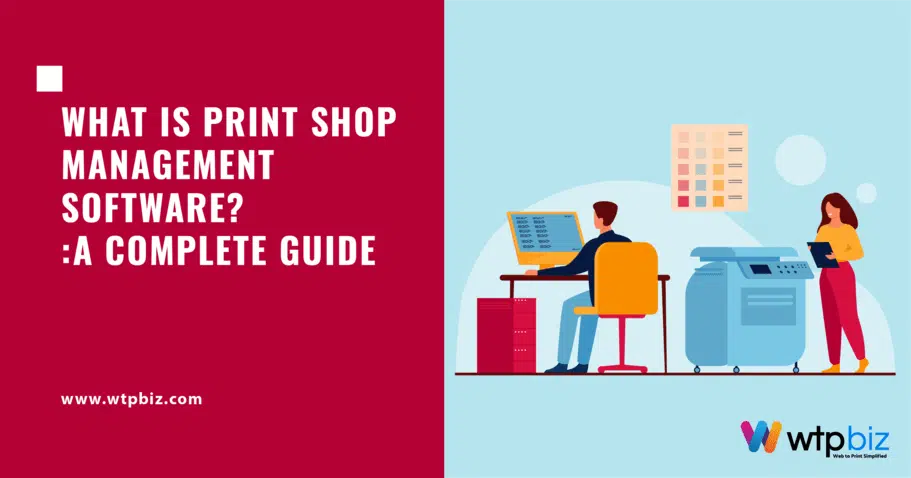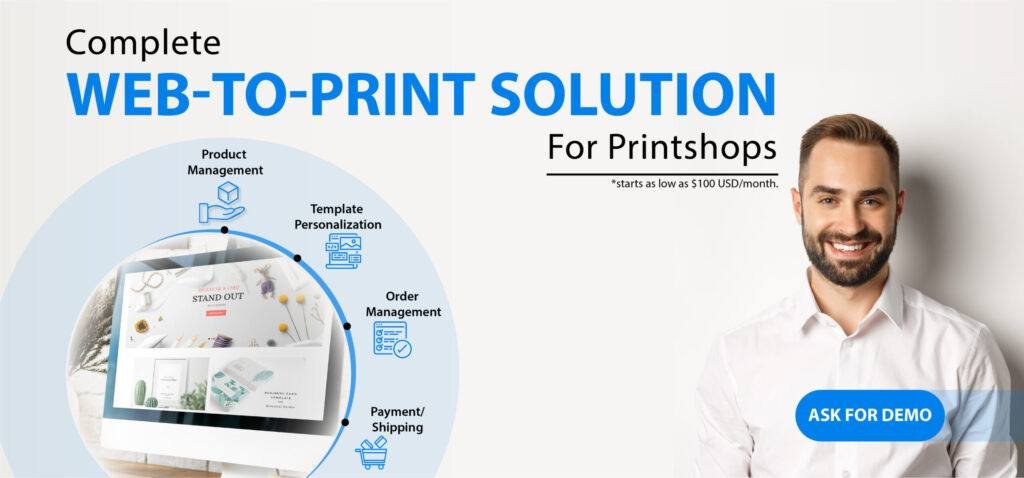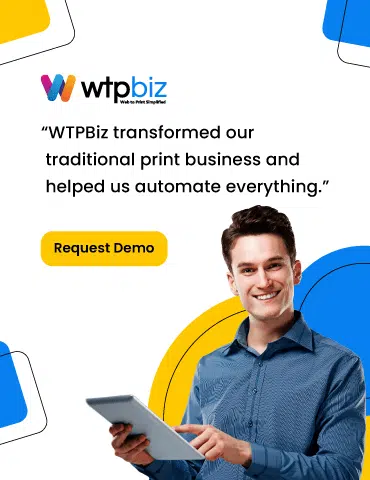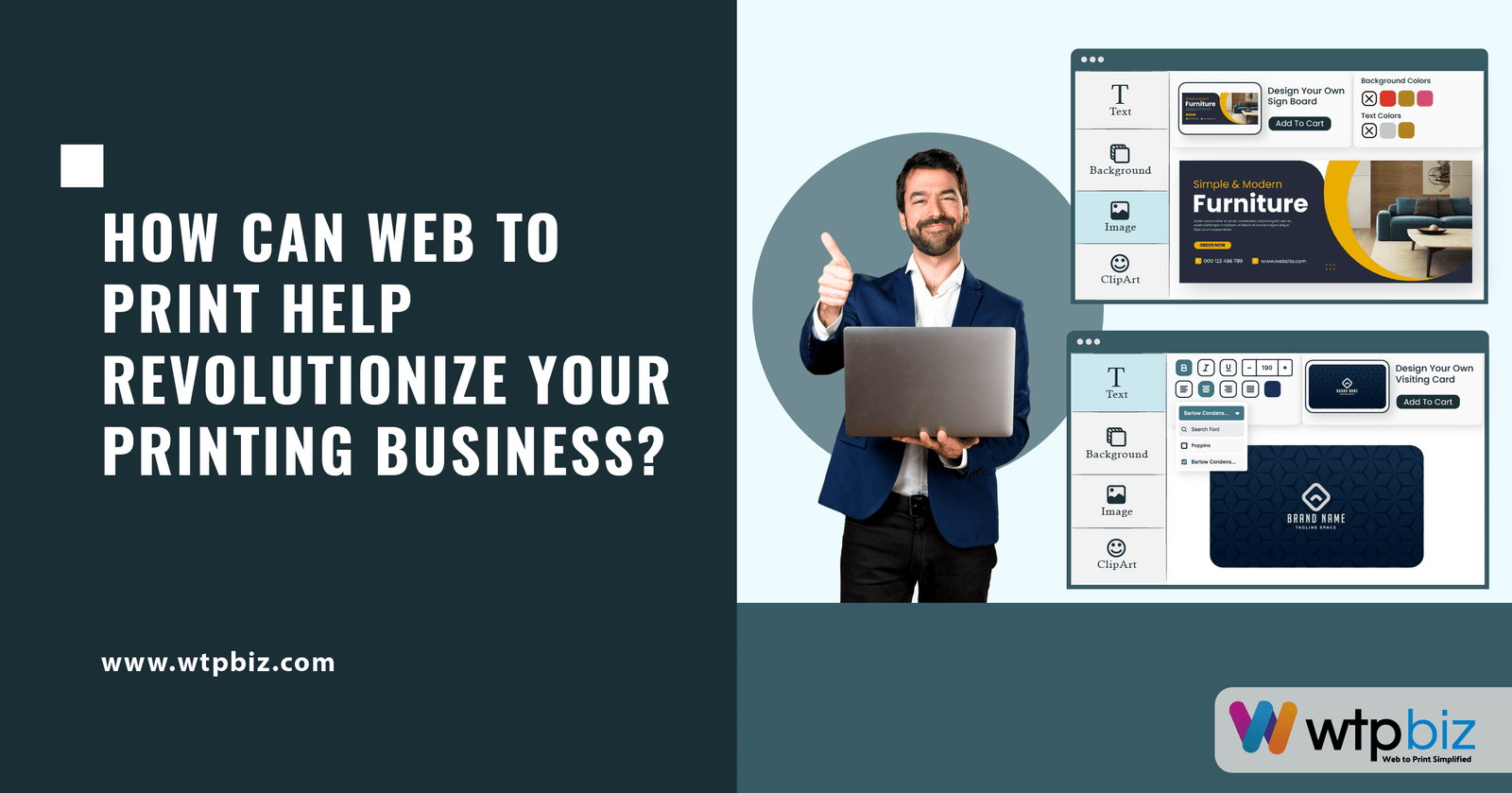What is Print Shop Management Software? A Complete Guide
Your growing business can be built on management software for print shops. The right system will enable your growth, simplify your personnel’s job, and boost productivity while allowing you to unwind on vacation.
Print management software enables organizations to centralize administration and reduce printing expenses by providing tools to monitor, control, and maintain their entire printer fleet from a single user interface.
It can be challenging to choose the best print shop management software. It could feel overwhelming and distressing.
How to find shop management software most efficiently?
Finding print shop management software is as simple as searching for anything that appeared user-friendly, straightforward automated tasks, and was expandable for your company. This may be useful when buying a new office building; however, shop management systems don’t work with it.
A different approach can be used to find software for print shop that is a good fit for your business and gives you the sensation that it is assisting you rather than hindering you.
It’s not necessary, which is good news. If you follow the guidelines in this seven-step process, you’ll be well on finding a successful system.
- Ensure that the time is suitable.
Verify that the right moment has arrived for your company to deploy new print shop software. It is easy for us as leaders to think that something needs to change when we see the results of internal processes that are taking too long.
Missing deadlines, experiencing slow quotes, and receiving underpaid orders are all very frustrating. All of these common problems can be solved with the proper management software for a sign shop or print shop. But timing is critical.
Here are a few signs that it might be best to wait:
- You lack the resources (time and money) for a “decent” implementation.
- You are currently in the midst of your hectic period.
Work backward to discover the steps you need to take to achieve your objective after looking at the calendar to establish the best time to implement.
For instance, you foresee a slowdown in your firm in about three months; therefore, now would be the perfect time to implement a new system. You also aim to increase your personnel during the following six months. You’d like to give your crew a few weeks to get used to the new system before the new hires show up.
The timetable for your project should resemble the one below, giving you 12 weeks to assemble your team and get things moving.
- Choose your objectives
Before looking for shop management software, it’s useful to know where you want to be in six months, a year, and three years. Outline the main justifications for your need for a better system, and then translate those justifications into specific, measurable goals.
What goals do you have?
- Do you wish to automate client follow-up?
- Can your sales process save 5 hours per week and halve the time it takes to produce quotes with automated pricing?
- Give your production team a way to receive information about due dates and detailed instructions.
- Lessen the time spent wandering the factory floor looking for work?
Shiny promises of features you believe you need might be very alluring. Having a distinct idea of where you want to be after the system is operational will:
- Help you maintain concentration as you consider your options.
- Keep you inspired while you build up the system.
- Permit you to verify that the system is operating as it should.
- Get your team going.
Realize how important it is to involve your team in developing and implementing a new management system.
The search for a system is something other than something that one person can accomplish. It’s easy to think you’ll have the answers because you know how everything works, but doing so is a definite way to fail.
As a daily usage item for your team, leaving them out can make them feel left out. Please be sure your choice will benefit them. Although there may be some heated debates, all viewpoints are equally valid. Getting their advice before you start will assist develop momentum and promote buy-in.
If your team includes more than ten employees, different people might manage different aspects of your business.
- Choose a key person to “own” each section.
- Ask them to be more specific about the system’s requirements.
- Invite them to software demonstrations and testing.
Finding insider knowledge from your team’s professionals could be quite beneficial.
When it comes time to configure the system, have the rest of your team receive instruction from these super users. They’ll be able to help your users adjust to the new system while also serving as your best advocates for doing so in the future.
By incorporating your staff, you’ll improve the system’s performance and go a step closer to taking a holiday. A good strategy, huh?
- Streamline your Procedures
Because so many apps are available, many businesses can customize their own “enterprise” level system. Although it’s a fascinating concept, it’s easy to feel intimidated. You might even choose a print MIS software in search of a better one.
Finding the right fit for you might be simpler by creating your list of traits. Making a flowchart of your process from beginning to end, department by department, is the simplest approach to getting started (sales, production, etc.). Include every stage, action, and decision.
Your business is prevented from running at its full potential by a bottleneck known as a “gap,” which results in missed deadlines, under- or overproduction, bottlenecks, or other issues.
Here are a few examples of potential errors in your process.
- Unclear condition of commodities or goods acquired through outsourcing
- Updating the time needed to finish a task
- Customers that don’t show up
- Incomplete or incorrect consumer information
- Poor departmental coordination
- Uneven workload or performance expectations for employees in the same position
- Boring or meaningless tasks
- Workarounds created by someone on vacation or who are not currently employed by the organization
The use of workarounds is one of the most important yet frequently overlooked bottlenecks in any process. We incorporate these components into our process to simplify and hasten the work. A program, keyboard shortcut, or spreadsheet may be used to calculate or provide statistics. We eventually stop remembering to use the workaround because we become so accustomed to it that it quickly becomes a part of our routine. It becomes automatic.
Mapping your workflow is one of the best exercises for locating the gaps and major pain areas. More importantly, you’ll learn what caused the gaps.
Even the most dependable processes begin to falter when the workload doubles or triples. Instead of attempting to automate the process blindly, carefully analyze the situation. You may find that the problem results from a lack of training, poor communication, or unnecessary workarounds.
- Prepare a Wishlist
Note the time-consuming, repetitive tasks or bottlenecks in your current process and what would be needed to address each one. Make them unique. For instance, reduce the time it takes to prepare a quote or rapidly compile a list of all the jobs in your shop (automate pricing).
Most print shop programs are categorized according to how they will be used, such as customer relationship management/sales, production management/control, and purchasing. It’s advantageous to group your list by category or department.
On a scale of 1 to 5, where 1 represents a characteristic that is absolutely important for your firm’s success and 5 represents the desired feature but not necessary, rank each item in order of significance. By doing so, you’ll be able to assess quickly whether a system is a good fit.
Finding a system that performs all the functions you require is impossible, but if you can find one that meets 80% of your needs, it will be a good fit.
- Seek for options
Now is the enjoyable part. Shoppers can find a list of viewpoint systems. Both trade exhibitions and online searches are fantastic venues for this.
When you find a possibility, check to see if your budget will support it before comparing the set of features to your wish list. Most companies disclose their pricing options and system features on their websites.
Streamline your list, so it only contains three to five items that cover all your needed features. At the very least, your medium to high-priority needs must be met.
Here are some places to get started for you:
- For printers and sign shops, view the best sign shop software.
- The greatest screen printing software for apparel decorators may be found here.
- Demo and Test
Request a demo from every company. During the demo, request that the representative show you how to perform the tasks on your feature list. After that, assign a grade to each one depending on how well it meets your needs.
Here are five additional essential considerations:
Workflow: Keep an eye out for simplicity and flow as the representative walks you through creating a quote, a job, etc.
Integration: Determine which other systems it can interface with. This can be used to determine how straightforward it will be to automate procedures like online requests and shipping. Also, check whether the software for the print shop is accurate to work in web-to-print conditions.
Reports: Request a demonstration of the various report types from the representative. Reports are crucial for helping you streamline your process by eliminating unnecessary operations and pointing out areas for improvement.
Support: Find out if the company offers implementation assistance and how they handle ongoing assistance. The use of a guide can significantly increase the setup process’s success. Check whether you are comfortable with the rep’s knowledge of the software and your industry.
Cancellation Policy: Make a backup plan in case something goes wrong, check for any cancellation fees, and see if you can export your data.
If you can, download a trial version and give it a try.
Follow your process map to complete the actions you perform each day. Create and track a sales lead, for example, or send and track a quote and customer proof.
You should think about it from the customer’s perspective.
Do the quotes, bills, or emails make sense? Sending yourself an email with a quote will allow you to see it from the customer’s point of view.
Consider the system’s ease of use and how well it will integrate with your existing procedure. Since the goal is to increase efficiency, the system should be set up to maximize workflow throughout your entire process.
If the program doesn’t have the capabilities you need, or particular tasks or processes seem uncomfortable, it could make that part of your method harder. Most individuals will find new ways to get around the system in the circumstances like this, which completely negates the purpose.
You will have the confidence necessary to choose the system that will best meet your needs both now and in the future if you have a clear understanding of what each system is capable of, what kind of support you’ll receive, and how well it will integrate into your current process.
Conclusion
Most of us, as business owners and managers, focus on the work we accomplish as a team rather than the newest and greatest software solutions. The hiring process can be challenging and frustrating. The ultimate authority on your industry and business is you. Making sure the timing is appropriate, keeping your eye on your final objective, utilizing internal resources, and investing the time to carefully investigate what you genuinely need and a system’s capabilities will help speed up the decision-making process and ensure that you pick the best choice. Make sure, in the end, and you choose the best print shop management software for the company.
Contact WTPBiz for implementing print management software for your print business.






